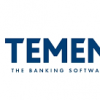
Matthew Gamser, CEO of the SME Finance Forum, discusses the important role SMEs play in a country’s economy and what should be done to better support and promote them.
The SME Finance Forum is a global center for knowledge exchange and networking created by G20 countries to support help close the SME finance gap around the world. They operate out of the International Finance Corporation (IFC), which is the private sector arm of the World Bank. The SME Finance Forum has a growing membership network with wide range of financial institutions, banks, fintechs, development banks, non-banks, microfinance institution and more. They have a vast network of more than 200 institutions with headquarters in over 70 countries and operations in virtually every country in the world. Their members learn from each other, link to new business/partnership opportunities, and lead the industry voice in high level policy dialogue with the G20 and other important bodies.
Gamser says “SMEs are important in every country in the world, they are a major source of employment and of key goods & services. SMEs are usually driving innovation in their respective markets, there is a variance country-wise of about how much they make up GDP or how much value they add in country’s economy. However, they are important everywhere – without SMEs you don’t have the drive within any economy,” says Gamser.
COVID-19 crisis creating devastation globally had a silver lining to it. It has massively pushed the shift towards digital. Gamser says that, “Not only individuals but governments have also been forced to consider putting forward few key reforms like recognizing digital signatures on contracts and recognizing ways to do AML/CFT and other compliance procedures without physical presence of the customer. It has forced people to recognize that we have to be flexible, because there are going to be times when we can’t move around. And this won’t be the last time. At the end of the day, this is still a difficult crisis and a very difficult time, but as it’s moving more small firms to digital, it’s providing an opportunity to be in much closer touch with them in real time, not just waiting until they come to the bank with their financial statements, or until somebody visits them to inspect what things look like at the place, you are able to track what’s going on in real time.. Although most SMEs are very severely affected, some are thriving, if you’re in areas like producing medical equipment’s or if you’re in delivery and others.”
SMEs in general are very resilient and very adaptable, but a lot of SMEs do fail and need to start again, Gamser says “SMEs need to know where their customers are and make right decisions about how to deal with them, and that requires being sure that that you’ve adapted your system so that you’re getting as much real time data from the sector as it’s chewing and spewing out now, which will be possible with the help of the digital reforms.”
“Financial institutions are crucial in supporting SMEs thrive, but up until recently very few financial institutions have had a real SME strategy that made sense. That is part of the reason why there’s such a huge finance gap facing SMEs in virtually every country in the world, developed and emerging alike, we are entering a very new era thanks to technological change and digitalization of SME life and work, with more and more transactions are moving from cash to electronic payments, and more and more business deals moving from paper or just oral agreements onto digital platforms that are recording contracts. this is opening all sorts of doors. The financial institutions that are going to succeed are the ones that are recognizing how important these changes are and how it’s a great opportunity – but only if you’re ready to change what you’ve been doing, and try to find new ways of doing things using new technology.”
Keeping SME business is fundamental for banks. To do so today, banks have to provide whole range of services that go beyond mere finance, whether providing them yourself or creating an ecosystem. Gamser says that, “Providing an ecosystem to small businesses has been made possible with the use of technology, cloud, open banking and by partnering with focused services providing non-banking services.”
Regulators have to make sure that SMEs are allowed to use the potential of digital technology to improve their transactions, because it’s the friction in those processes that’s been one of their biggest obstacles to growth and accessing finance. Gamser says that, “Too much paperwork and physical presence is still required to do transactions between banks and SMEs and too much unnecessary duplication of information provision, because systems aren’t talking to each other. So not only do the regulators have to recognize the need, but also both banks and even governments have to play their role in changing processes to make them more frictionless.”
These issues and more will be discussed at this year’s Global SME Finance Forum, the flagship annual meeting held by the SME Finance Forum. This event which address all these challenges and offer innovative solutions, helping the industry learn how peers are coping with the crisis and making most of what they have at their disposal, and what sort of partnerships might be beneficial going forward. This annual meeting has transformed from its normal physical conference to a completely digital one this year, with virtual technology they are able to bring the same experience, including site visits and networking. It is the highest level, the most technically in depth and the most geographically diverse meeting about SME financing that takes place anywhere in the world each year., Gamser adds, “From the 26th till 28th of October, the global SME Finance Forum will be in cyberspace this year, it’s going to have more people than ever, it already has more than 1000 people signed up from over 110 countries and more than 400 different institutions. We have decided to open our conference door for free this year for everyone. It is normally free only for our members. I invite everyone to work together, band together and share knowledge & lessons at this year’s SME Finance Forum.”
To register to the event, please visit www.globalsmefinanceforum.org/2020/










